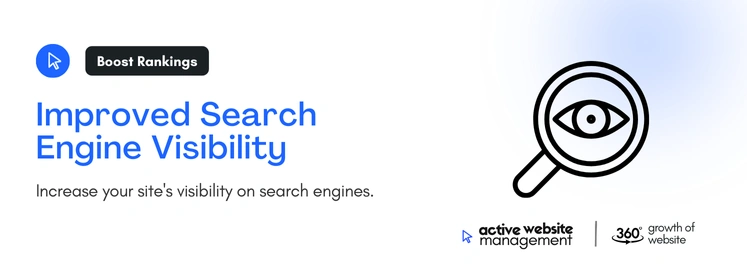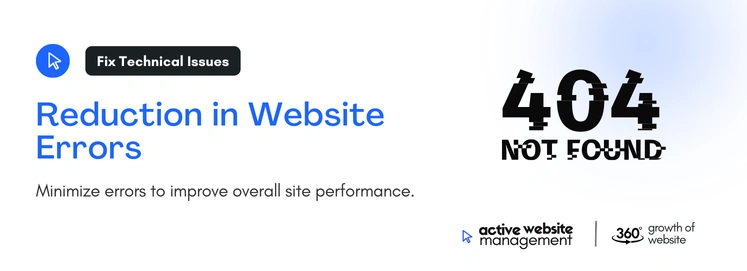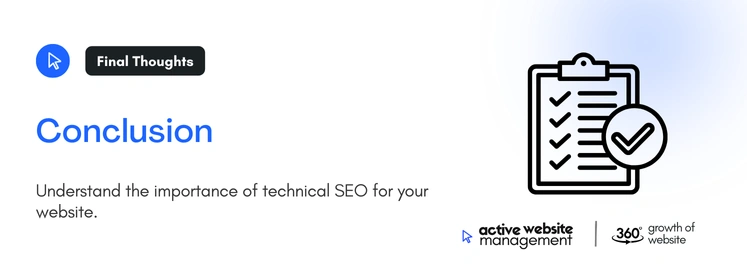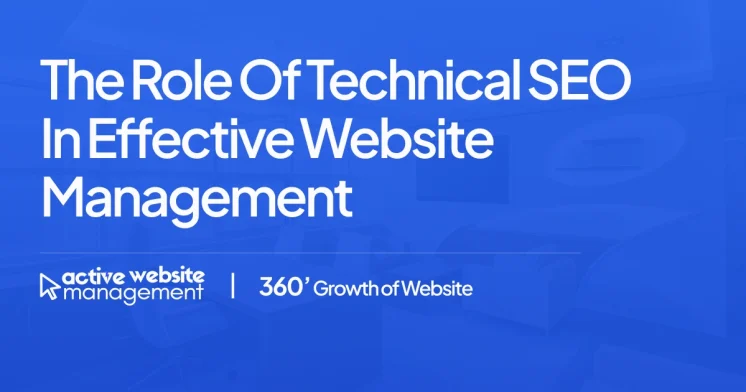
In today’s competitive online landscape, simply having a website isn’t enough. To truly leverage the potential of your digital presence, you need to ensure that your site is well-optimized for search engines, performs efficiently, and provides a seamless user experience. Technical SEO plays a crucial role in this equation, ensuring that your website functions properly and ranks well on search engines like Google. In this article, we’ll explore the importance of technical SEO in website management, its key components, and why focusing on it can make a significant difference for your business.
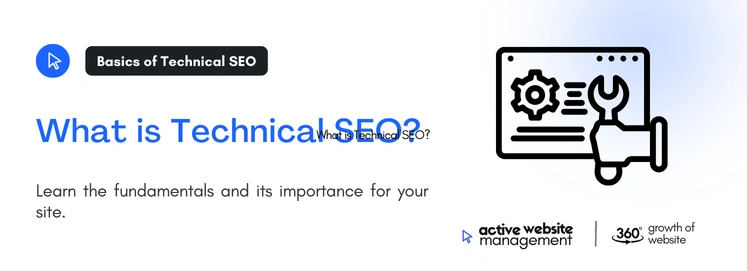
Technical SEO refers to optimizing the backend structure and elements of a website to help search engines crawl, index, and rank it more efficiently. While traditional SEO focuses on content, keywords, and external signals like backlinks, technical SEO deals with the underlying architecture that makes a website run smoothly. This includes elements like website speed, mobile-friendliness, site security, and XML sitemaps—all of which contribute to better rankings and improved user experience.
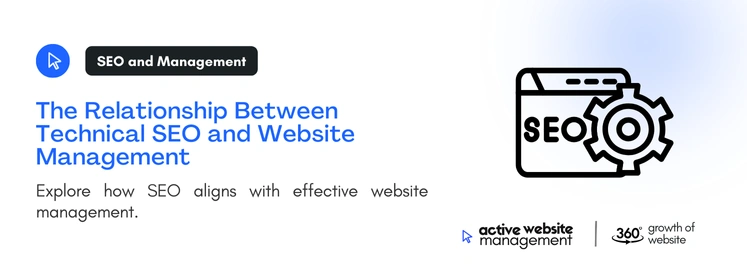
Effective website management isn’t just about keeping your content up-to-date or ensuring that your website looks visually appealing. It also involves maintaining the technical aspects of your website to ensure it performs at its best. Technical SEO is a core component of this, as it directly impacts how well search engines and users interact with your site. Regular maintenance of technical SEO helps ensure that your website runs smoothly, ranks higher in search results, and provides a seamless experience to your visitors.
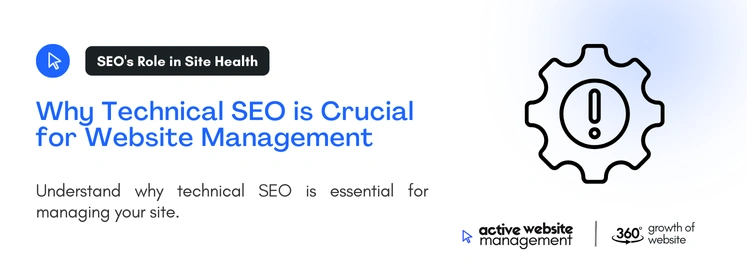
Don't Wait for Growth—Accelerate It with Active Website Management
The primary goal of SEO is to improve your website’s visibility on search engines, and technical SEO plays a significant role in this. Search engines like Google use bots to crawl and index web pages. A website that is properly optimized from a technical standpoint makes it easier for these bots to understand the content and structure of your site. This leads to better indexing and, ultimately, higher rankings in search engine results.
An XML sitemap acts as a roadmap for search engines, helping them understand the structure of your website. It lists all the pages on your site that you want search engines to crawl and index, ensuring that none of your valuable content is overlooked.
A well-configured robots.txt file guides search engine crawlers on which parts of your site to index and which to ignore. This is critical for ensuring that your important pages get the attention they deserve, while less significant or duplicate content is left out.
User experience (UX) is a key factor in both SEO and website management. A website that is slow to load, difficult to navigate, or incompatible with mobile devices will frustrate users and drive them away. Technical SEO helps address these issues, leading to a more enjoyable and efficient experience for your visitors.
Site speed is a major ranking factor in Google’s algorithm, and it also has a direct impact on user satisfaction. Pages that take too long to load are more likely to have higher bounce rates, meaning visitors leave your site before exploring it further. By optimizing elements like image sizes, reducing the number of HTTP requests, and enabling browser caching, you can significantly improve your site’s loading times.
With over half of all global web traffic coming from mobile devices, ensuring that your website is mobile-friendly is no longer optional. Google’s mobile-first indexing means that the search engine primarily uses the mobile version of your site when determining rankings. Technical SEO ensures that your site is responsive, loads quickly on mobile devices, and provides a seamless experience for users regardless of the device they are using.
Security is another key aspect of technical SEO. A secure website not only protects your business and your customers but also helps boost your search engine rankings. Google considers website security a ranking factor and actively warns users against visiting sites that lack proper security measures.
An SSL certificate encrypts the data transferred between your website and its visitors, ensuring that sensitive information like passwords and credit card details remain secure. Websites with SSL certificates display “HTTPS” in the URL, which also boosts user trust. Google has made HTTPS a ranking factor, so securing your site with an SSL certificate is essential for both user safety and SEO.
Routine security audits can help identify vulnerabilities in your website’s infrastructure. Technical SEO includes maintaining these security measures to ensure that your site is not only safe for users but also viewed favorably by search engines.
Don't Wait for Growth—Accelerate It with Active Website Management
Technical SEO helps identify and resolve various website errors that can negatively impact both user experience and SEO performance. These errors include broken links, 404 pages, and server issues that prevent search engines from properly crawling your site.
Crawl errors occur when a search engine tries to reach a page on your site but fails. These errors can significantly impact your rankings. By using tools like Google Search Console, technical SEO experts can identify and fix these errors, ensuring that all your important pages are crawlable.
Broken links not only frustrate users but also harm your SEO performance. Regular audits of your website’s internal and external links can help identify and fix these issues, improving both user experience and SEO rankings.
Structured data, also known as schema markup, helps search engines better understand the content of your website. By adding this code to your site, you can improve how your pages appear in search results, often leading to rich snippets that feature additional information like ratings, reviews, or event details.
Rich snippets stand out in search results, attracting more clicks from users. By implementing structured data, you increase the chances of your website appearing with these enhanced features, which can lead to higher click-through rates and more traffic.
Structured data also helps search engines more accurately index your website’s content, ensuring that it ranks for the most relevant keywords and phrases.
Technical SEO isn’t a one-time task; it’s an ongoing process that should be regularly maintained as part of your website management strategy. By continually optimizing your site’s technical elements, you ensure that it remains competitive, visible, and functional over time.
Technical SEO requires constant monitoring to identify and fix issues before they become major problems. Regular audits of your website’s speed, security, and performance are necessary to ensure that your site remains optimized and runs smoothly.
Search engines are constantly evolving, with updates to their algorithms occurring several times a year. Staying on top of these changes is crucial for maintaining your rankings. Technical SEO involves adapting your website’s structure and functionality to meet the latest search engine guidelines, ensuring that you don’t lose visibility.
As your website grows, so too will the need for more robust technical SEO measures. A site that expands with more pages, content, and media requires more resources to maintain its speed, security, and SEO performance. Technical SEO ensures that your site remains scalable and continues to perform well even as it grows in size and complexity.
Failing to prioritize technical SEO can lead to a wide range of issues, from slow loading times and poor search engine rankings to security vulnerabilities and lost customers. A well-managed website relies on strong technical SEO to ensure that it functions efficiently, ranks highly, and provides a smooth user experience. By making technical SEO a priority, you not only improve your website’s performance but also increase its potential to generate traffic, leads, and conversions.
Managing the technical aspects of your website and ensuring that it meets search engine standards can be a complex and time-consuming task. This is where Active Website Management (AWM) comes into play. AWM provides a comprehensive service that not only manages your website’s daily operations but also ensures that its technical SEO is continuously optimized. Here’s how AWM can help your business implement and maintain technical SEO.
Active Website Management ensures that your website is regularly audited for any technical SEO issues. These audits include analyzing site speed, mobile responsiveness, and identifying any crawl errors. AWM continuously monitors these aspects to ensure your website stays optimized and runs efficiently.
AWM will regularly check for crawl errors such as broken links, missing pages, or server issues that prevent search engines from properly indexing your site. By resolving these issues promptly, your website’s ranking potential improves significantly.
One of the key functions of AWM is optimizing your website’s speed. From reducing file sizes to enabling browser caching and leveraging content delivery networks (CDNs), AWM ensures that your website loads quickly, which is essential for both SEO and user experience.
With Google prioritizing mobile-first indexing, AWM ensures that your website is fully responsive and optimized for mobile users. This involves checking mobile load times, ensuring the design adapts well to smaller screens, and that the mobile version of your site provides the same high-quality experience as the desktop version.
AWM constantly tests your website across different devices and screen sizes to ensure seamless mobile functionality. This proactive approach helps your website rank better and provide a smooth user experience across all platforms.
Website security is a critical part of technical SEO. AWM ensures that your website has up-to-date SSL certificates, robust encryption, and security measures that protect both your website and its visitors. By maintaining a secure site, AWM helps improve your SEO rankings while also building user trust.
AWM handles the installation and renewal of SSL certificates, ensuring that your website is secure and compliant with Google’s security standards. A secure site not only ranks higher but also builds credibility among users.
In addition to basic SSL management, AWM conducts routine security audits to identify any vulnerabilities that could compromise your website’s performance or user safety. This ensures that your site remains secure, which is vital for maintaining your rankings.
Active Website Management ensures that your website’s XML sitemap and robots.txt files are optimized. This ensures search engine crawlers can easily find and index your important pages, improving your site’s search engine visibility.
AWM regularly updates your XML sitemaps as your site grows, ensuring that new content and pages are included and promptly indexed by search engines. This improves the likelihood of your new pages ranking well.
By managing your robots.txt files, AWM controls which parts of your site are crawled by search engines, ensuring that the right pages get indexed and irrelevant or duplicate content is ignored.
AWM helps implement structured data on your website, which allows search engines to better understand your content and display rich snippets in search results. This enhances your visibility and increases click-through rates.
AWM ensures that schema markup is correctly implemented for products, services, reviews, and other content types. This boosts your chances of appearing in rich snippets and drives more traffic to your site.
AWM routinely tests and validates your site’s structured data using tools like Google’s Structured Data Testing Tool, ensuring that it’s error-free and fully optimized.
Technical SEO is not a one-time task; it requires continuous attention and adjustments as search engine algorithms evolve. AWM provides ongoing technical SEO maintenance, adapting your website to meet the latest SEO best practices and search engine updates.
As Google and other search engines roll out algorithm updates, AWM makes sure your website stays aligned with the new guidelines. This keeps your rankings stable and helps you stay ahead of the competition.
AWM continuously works to optimize your website’s code and content for better performance. This includes compressing images, minifying CSS/JavaScript files, and implementing best practices to ensure your site runs smoothly and ranks well.
Active Website Management doesn’t just handle technical SEO behind the scenes; it also provides detailed reports that show how these optimizations are improving your website’s performance. From tracking your ranking improvements to monitoring traffic growth, AWM keeps you informed on how technical SEO is impacting your website’s success.
AWM tracks critical SEO metrics such as crawl rates, page load times, and mobile performance. By keeping an eye on these key indicators, AWM helps you understand the technical health of your website and its impact on your rankings.
AWM provides regular reports that highlight any SEO issues or areas for improvement, ensuring that any problems are addressed before they can affect your rankings.
By incorporating technical SEO into your website management strategy, you set your site up for success, both in terms of search engine rankings and user satisfaction. With the right technical foundation, your website can become a powerful tool for growing your business and staying ahead of the competition.
By incorporating Active Website Management into your website management strategy, you’re not only ensuring that your site functions smoothly but also that it ranks higher, performs better, and provides a superior experience to your visitors.

Be quick! Spots are almost gone for September. - Starts at ₹6666/month
Get started with AWM today and watch your website grow.
Our expert team is ready to help.
We respect your privacy. Unsubscribe anytime.
We respect your privacy. Unsubscribe anytime.
